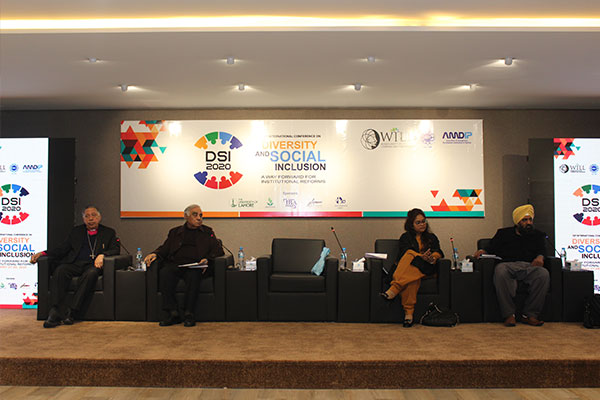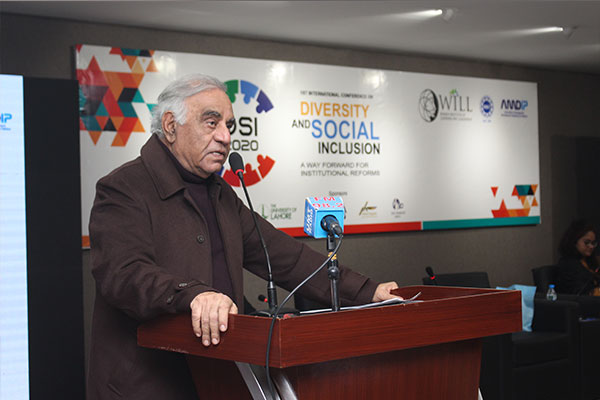Second Panel Discussion at the Second Day of International Conference on Diversity and Social Inclusion
Tuesday, January 28 2020
The second panel discussion based on the theme cultural relativism, included people from diverse backgrounds. It comprised Ayra Indrias Patrias, Interfaith Activist, Kalyan Shah, Interfaith Activist, Naeem Tahir, Columnist and Dramatist, Alexander J Malik, Bishop, Dr Qais Aslam, Economist, Environmentalist and Educationist and Dr Junaid Ahmad, Educationist and Research Fellow from Leeds University.
Ayra Indrias initiated the discussion by defining the term relativism as a binary opposite to absolutism. She was of the view that cultural differences are to enrich each other.
Kalyan Singh reverted to his mother tongue Punjabi and put forth his views. According to him, religion is not enforced but is something preached with love and unity. He also highlighted the fact that how the government has miserably failed in formulating laws for minorities.
Naeem Tahir focused on how it is not the government’s responsibility to put an end to discrimination but we as individuals need to play our part in order for it to end.
Alexander J Malik also advocated for minority rights. He said that minorities are not excluded unless there is imposing of monolithic culture. All in all, the discussion was a fruitful one, highlighting issues on discrimination and violation of rights.
Dr Qais Aslam, addressing the audience, added that different cultures have different ways of living and uniformity in society is something that is drawn from capitalistic mind set. He further added that uneducated people of the country can also be deemed as minority, due to inadequate provision of health, education and basic amenities of life.
Dr Junaid Ahmad said that the need of hour is to understand the meaning of these buzz terms, including diversity and inclusivity in global context. He added that the reason behind discussing these issues does not emerges from traditional Islam, but are a by-product of specific developments in modernity and the varying notions of fundamentalism, not just religious fundamentalism.

